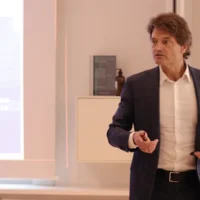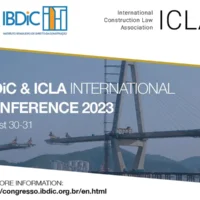Cape Town, South Africa – April 8-9, 2025
A Groundbreaking Event on African Soil
Opening with Vision and Purpose
The International Construction Law Association (ICLA) made history this April by hosting its first-ever conference on African soil. The Cape Town International Convention Centre welcomed 198 delegates from 10 countries, marking a pivotal moment in the global construction law community’s engagement with the continent.
Under the compelling theme „Revealing the Foundation of Modern Project Success: Contracts as Tools for Modernising Collaboration and Resolving Conflict,“ the two-day event brought together legal practitioners, engineers, academics, construction professionals, and policymakers from Zimbabwe, South Africa, Lesotho, Eswatini, Botswana, Namibia, Ireland, the United Arab Emirates, and Germany.
The conference featured an exceptional lineup of international and local expertise, including representatives from leading institutions such the University of Cape Town, The British University in Dubai, and major consultancies like HKA Global. Local voices from CIDB, SACPCMP, and various legal practices provided crucial context for South African and regional applications.
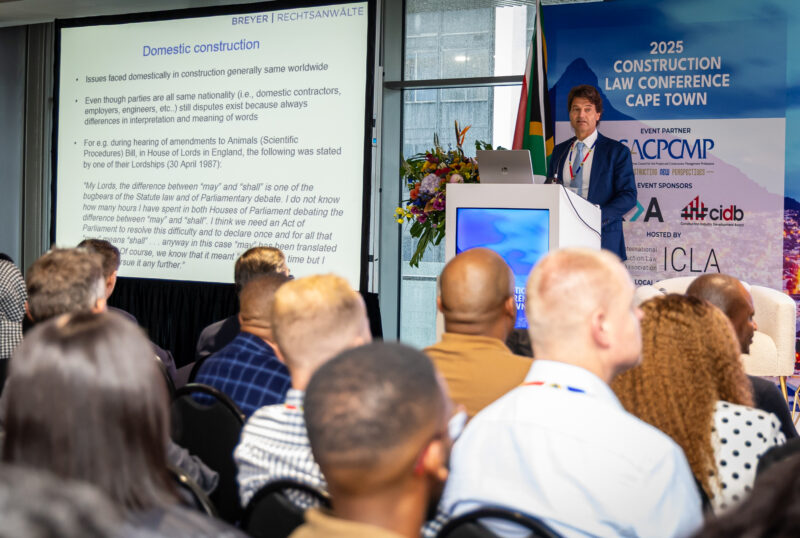
The conference commenced with inspiring remarks from Dr Wolfgang Breyer, ICLA Chairman, who articulated the ICLA’s mission, while addressing the legal complexities of large-scale infrastructure projects.
A highlight of the opening of day 2 was the keynote address by Deputy Minister Sihle Zikalala of Public Works and Infrastructure, who emphasised South Africa’s commitment to infrastructure development as an economic catalyst. His announcement of over R1 trillion in public infrastructure spending over the next three years, alongside new public-private partnership regulations, underscored the conference’s timely relevance.
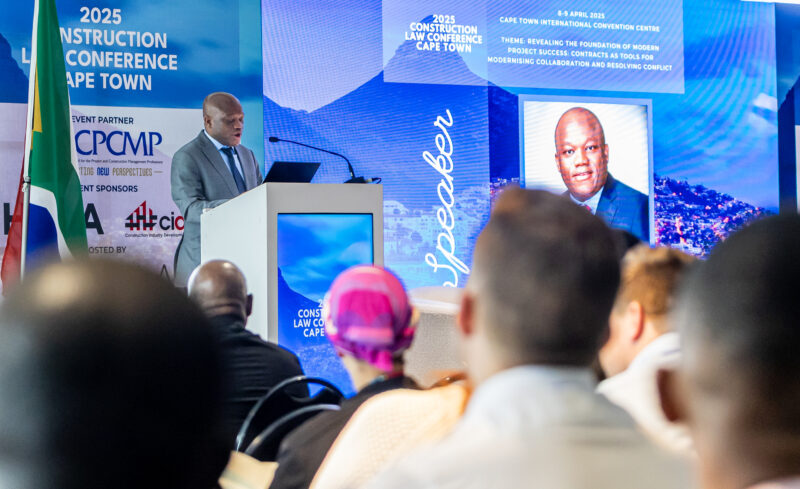
„South Africa is open for business, and infrastructure delivery serves as the bedrock and flywheel of our economy,“ declared Deputy Minister Zikalala, setting an optimistic tone for international collaboration.
Key Themes That Emerged
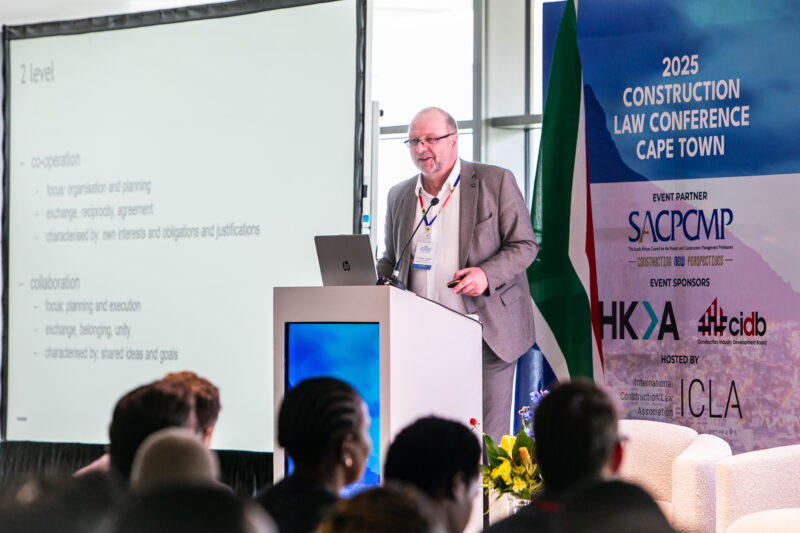
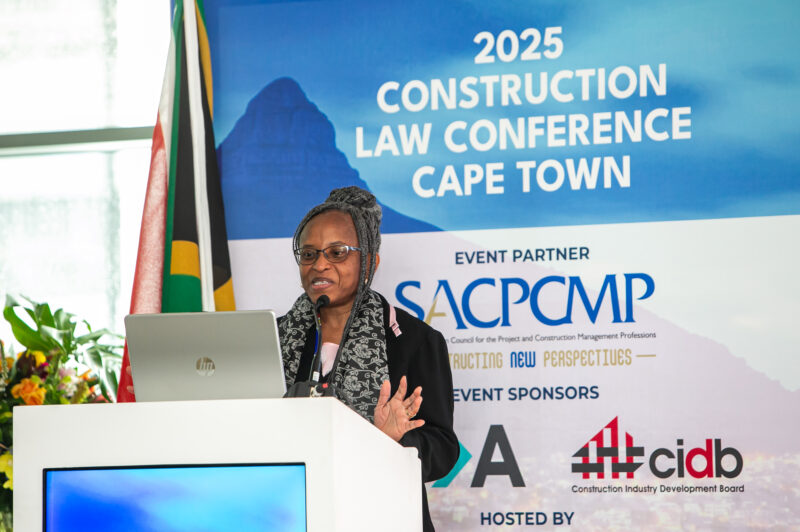
ICLA Board member Prof Aymen Masadeh from The British University in Dubai emphasised the critical need to adapt standard international contracts like FIDIC to local legal systems. His presentation highlighted how domestic courts often interpret arbitration clauses differently, warning against one-size-fits-all approaches.
Dr Ron Watermeyer challenged the construction industry to shift from fragmented legal compliance toward integrated, governance-led project delivery. His advocacy for abandoning the outdated „master-servant“ contractual model in favour of collaborative approaches resonated throughout the conference.
Prof Abimbola Windapo showcased the transformative potential of digital tools in construction law, from contract management software to AI-powered dispute resolution platforms. Her call for modernised legal frameworks that embrace innovation struck a chord with delegates seeking practical solutions for contemporary challenges.
Prof Stefan Leupertz delivered compelling insights on mediation and dispute avoidance, emphasising that „the only way to success is looking at the world through the other party’s eyes.“ His presentation highlighted how early issue identification and tiered escalation processes can prevent disputes from escalating into costly legal conflicts.
One of the conference’s most inspiring discussions centred on incorporating Ubuntu – the African philosophy of mutual respect and shared humanity – into modern contract design.
Mile Sofijanic from ECS Associates used the Springboks‘ World Cup strategy as a metaphor for high-performing project teams, demonstrating how South Africa’s cultural values could provide a competitive edge in collaborative construction.
This cultural lens offered fresh perspectives on dispute avoidance and stakeholder alignment, suggesting that traditional adversarial contract models might benefit from more inclusive, relationship-based approaches.
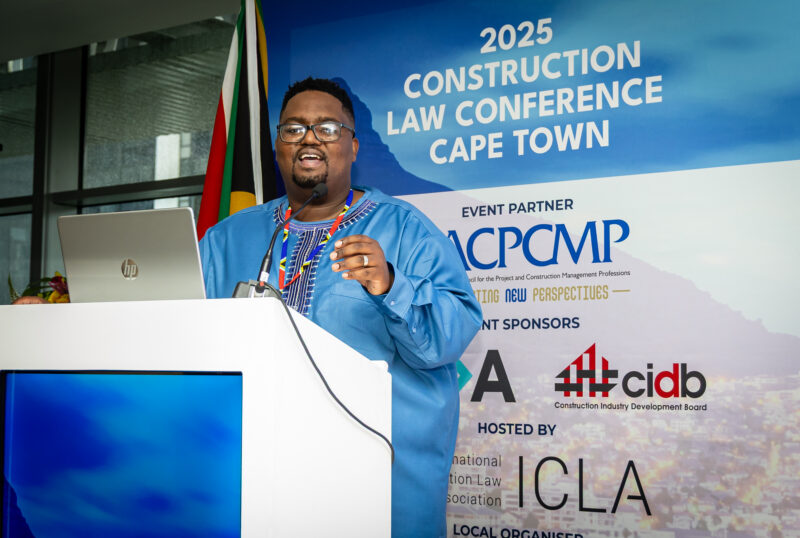
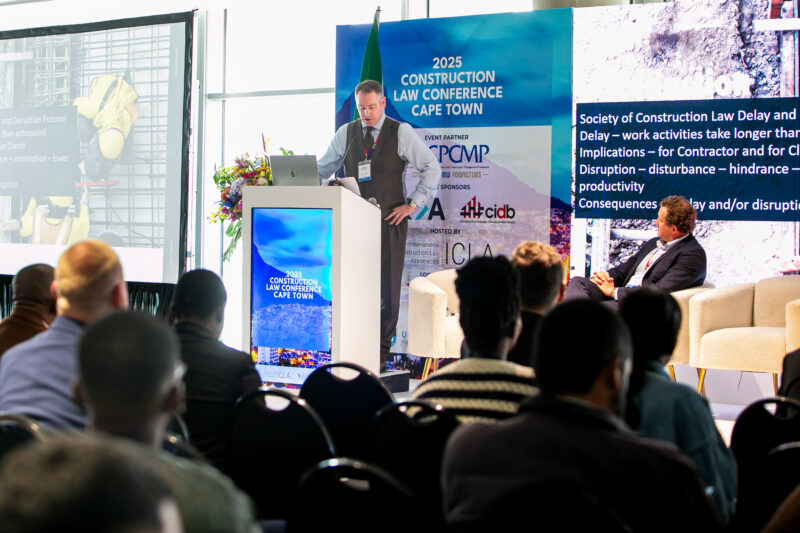
Strategic Partnerships That Made it Possible
The event’s success was enabled by strategic partnerships with:
- South African Council for the Project and Construction Management Professions (SACPCMP)
- Construction Industry Development Board (CIDB)
- HKA Global (Gold Sponsor)
- University of Cape Town
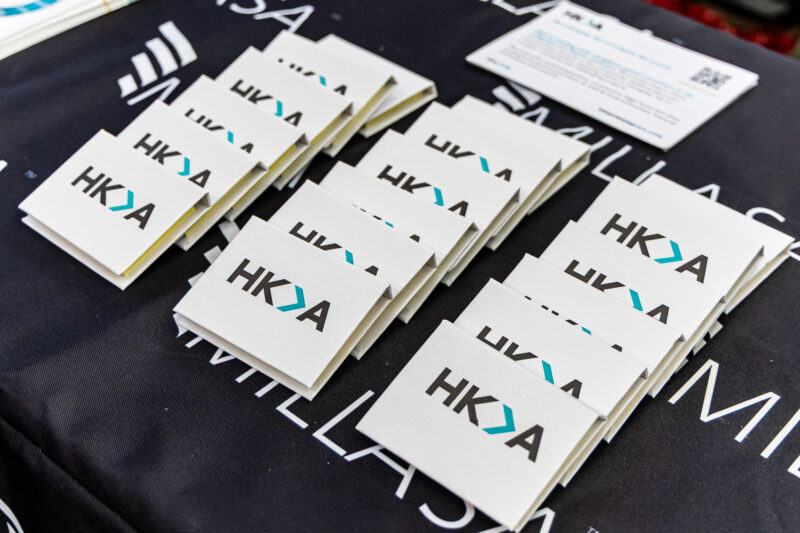
The Road Ahead
This historic Cape Town conference has established a foundation for continued engagement with African markets and legal systems. The overwhelming positive response from delegates, the quality of technical discussions, and the collaborative spirit demonstrated throughout both days confirm that construction law is evolving toward more inclusive, practical, and culturally sensitive approaches.
As the ICLA continues its mission to bridge the gaps in construction law principles and practices globally the insights gained from our first African conference will undoubtedly influence future ICLA initiatives, educational programmes, and best practice development.


